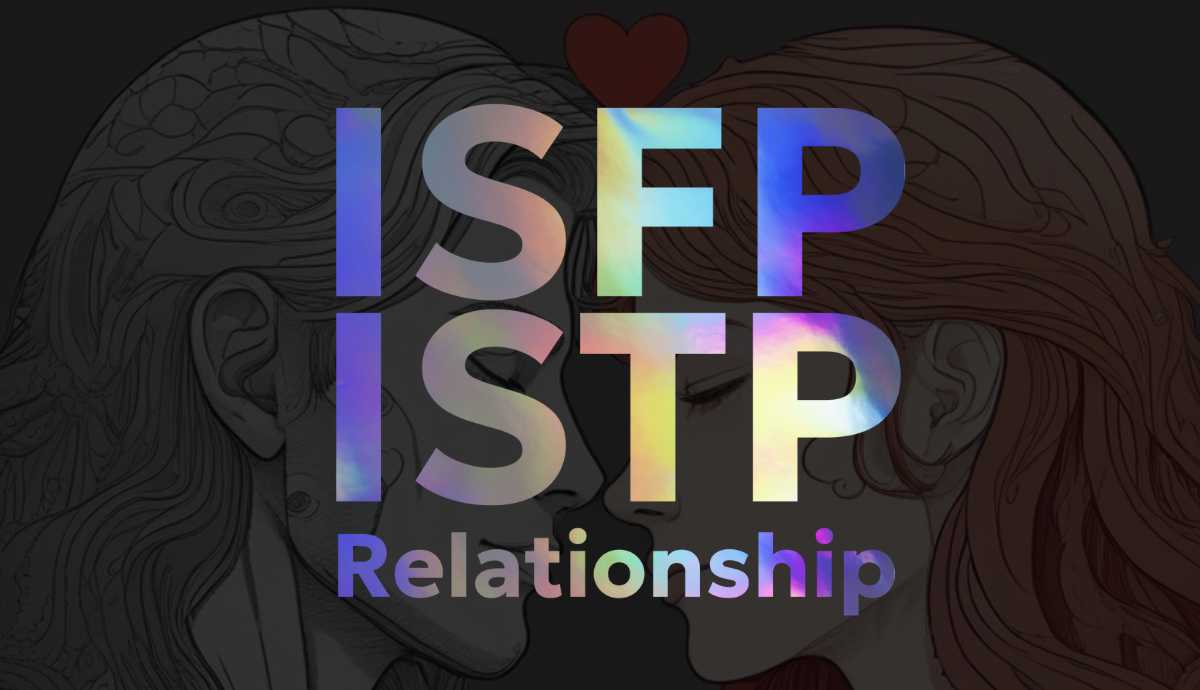The INFJ is one of 16 Myers Briggs personality types. They are described as the “advocate” and “diplomatic counselor”. These terms hint at the humane and supportive nature of this type. At roughly 1% of the population, INFJs are also the least common MBTI type.
They are introverts, but because of how sociable they can be, may sometimes get mistaken for an extrovert. These individuals engage with the external world through the lens of auxiliary Fe (extraverted feeling). The way in which they extrovert themselves is typically in the form of service to others and being a valuable and helpful human being.
However, their primary mode is introverted and the nature of their introversion consists of an inner vision of possibilities, intuitions and meanings popping in and out of their conscious awareness. When left to their own devices, life can feel like an open and endless sea of possibilities both good and bad.
However, the external world has a way of disrupting the INFJ’s insular world and their sense of obligation and social responsibility compels them to meet its demands. INFJs have dominant introverted intuition which means that their perceptions of reality are heavily influenced by their subjective ideals, imagination, and their awareness of patterns, and future outcomes.
INFJs have a perspective that is generally broader and more abstract in nature when compared with the more empirical and practical perspective of the ISFJ. Compared with the INTJ, they place more interest in addressing the problems of human welfare and social systems than the technical problems of mechanical systems.
INFJs are more idealistic than realistic but that is not to say they are delusional or out of touch with reality. This type is good at seeing possible pathways forward and can be ingenious problem solvers. Although they are often soft spoken, they have a quiet strength and can be incredibly determined to the point of stubbornness in pursuing a goal or promoting a special cause of great importance to them.
While INFJs are adept at understanding other people, they themselves can be difficult to read. Despite being kind and affectionate, they can often appear removed and slightly detached. This is because INFJs tend not to readily share what’s going on inside of them or make their personal reactions visible to others except those they trust.
Their moods can wax hot and cold, confusing their friends and romantic partners alike. Additionally, because of their empathic nature, they are highly sensitive to the emotional ups and downs of others such that it can take a toll on their own emotional health. People of this type try to avoid and prevent conflict and oftentimes seek to be agreeable for the sake of keeping the peace. They thus tend to be polite and careful in how they handle people.
At heart, INFJs are people pleasers, and anytime they receive praise and approval, it can really mean a lot to them. As a type prone to perfectionism, they can often place a lot of pressure on themselves to do a very good job or not let down themselves and other people who depend on them.
Criticism and negative feedback can often affect them deeply and sometimes undermine their confidence more than it should. Moreover, being exposed to the emotional distress of others can weigh heavily on their spirit, sapping their motivation and happiness. It can drain them to the point where they promptly withdraw from most human contact without much warning or explanation.
In between social interactions, INFJs require personal time to themselves where they can process their emotions, analyze meanings and engage in creative activities they enjoy. They feel more comfortable working behind the scenes rather than front and center in the spotlight.
Although these personalities are highly individualistic, they make an effort to harmonize their individualism with their environment. They would prefer working independently or in a more personal one-on-one capacity. Still, when they are required to work within larger groups and organizations, INFJs can still thrive so long as their role and interactions are meaningful and not superficial.
Motivated by inspiration, INFJs would rather be a pioneer than follow the beaten path. They are stimulated by challenges that call for creative solutions. They can be masters of metaphor, with a knack for explaining one thing in terms of another thing.
Their capacity for language that is laced with vivid imagery and layers of abstract meaning and linguistic devices, makes them well suited for careers as creative writers. This, along with their natural insight into human nature, allows them to really get through to a reader or listener in a personalized way that resonates deeply.
When it comes to academics, this personality type tends to be good as students and high achievers in a non-ostentatious way. As parents, they are devoted to their children and try to be a good friend to them while still being a firm and loving disciplinarian.
INFJs are able to form a special emotional bond with their kids that can sometimes be overly strong. They are very attune to their children’s emotional states and can get really wrapped up with whatever they are going through.
This can cause them undue worry and stress. Their intuitive and perceptive nature can make this type seem to have psychic-like abilities. As empaths, they can gauge what people are feeling and feel it very strongly in themselves.
Additionally, they are good at detecting a person’s motives whether they be benevolent or malicious. If ESP is real, INFJs are the type most likely to have it. The strength of their vision, and accuracy of their foresight and premonitions can make others come to view them as modern day prophets.
INFJ Strengths:
- Insightful and Intuitive: INFJs have a deep understanding of people and situations, often picking up on underlying emotions and motives.
- Empathetic: They are highly attuned to the feelings of others, making them compassionate and supportive individuals.
- Visionary: INFJs often have a strong sense of vision and purpose, driven by their ideals and desire to make a positive impact.
- Altruistic: They are dedicated to helping others and making a difference in the world, driven by a sense of social responsibility.
- Excellent Communicators: INFJs can articulate their thoughts and emotions effectively, both in writing and verbally.
- Creative and Artistic: They often possess a creative and artistic side, expressing themselves through various forms of art.
- Determined: Once committed to a cause or goal, INFJs are persistent and will work hard to achieve it.
- Deep and Meaningful Relationships: They value deep, authentic connections in their relationships, seeking intimacy and emotional closeness.
- Integrity: INFJs have a strong sense of personal integrity and are guided by their moral compass.
- Adaptable: Despite their idealistic nature, INFJs can adapt to changing circumstances and are open to new possibilities.
INFJ Weaknesses:
- Perfectionistic Tendencies: INFJs may set high standards for themselves and others, leading to frustration when expectations aren’t met.
- Overthinking: They can be prone to overanalyzing situations and dwelling on negative thoughts.
- Difficulty Saying No: INFJs may have difficulty setting boundaries and saying no to others, leading to overcommitment.
- Idealistic Expectations: They may hold onto idealistic visions, leading to disappointment when reality falls short.
- Tendency to Avoid Conflict: INFJs may avoid confrontations and conflicts, sometimes at the expense of addressing important issues.
- Difficulty Delegating: They may struggle to delegate tasks, feeling that they can do things better themselves.
- Self-Critical: INFJs may be overly critical of themselves, even when they have achieved success.
- Emotional Burnout: Given their empathetic nature, they may experience emotional burnout from absorbing the emotions of others.
- Privacy Needs: INFJs value their privacy and may be reserved, making it challenging for others to get to know them deeply.
- Struggle with Practical Matters: They may prioritize abstract ideas over practical considerations, leading to challenges in more pragmatic areas.
Famous INFJ People:
- Nelson Mandela – Anti-Apartheid Revolutionary and Former President of South Africa
- Sam Harris – Podcaster, Author, Neuroscientist
- Noam Chomsky – Professor, author, political activist
- Jordan B. Peterson – Psychologist, author, professor
- Cate Blanchett – Actress
- Jimmy Carter – 39th President of the United States
- Gandhi – Leader of the Indian Independence Movement
- Nicole Kidman – Actress and Producer
- J.K. Rowling – Author of the “Harry Potter” series
- Leonardo DiCaprio – Actor and Environmental Activist
Other MBTI Types:
- INTP Personality Type
- INTJ Personality Type
- ENTP Personality Type
- ENTJ Personality Type
- INFP Personality Type
- INFJ Personality Type
- ENFP Personality Type
- ENFJ Personality Type
- ISTJ Personality Type
- ISFJ Personality Type
- ESTJ Personality Type
- ESFJ Personality Type
- ISFP Personality Type
- ISTP Personality Type
- ESTP Personality Type
- ESFP Personality Type
related posts:
Want to know your astrology placements? You can generate your astrology chart here with our free birth chart generator tool.
- The Secret Life of INFJ: 23 Things INFJs Wish People Understood About Them
- INFJ Bad Romance: 6 Common INFJ Relationship Problems
- 12 Shades of INFJ | Zodiac Signs and the MBTI
- INFP vs INFJ: 5 Features That Set Them Apart
- INFJ vs INTJ: Differences and Similarities
- INFJ Compatibility with the Rational Types
- INFJ in Love: 6 Things To Love About INFJ.
- INFJ strengths: 7 Best Traits of INFJ
- The Dark Side of the INFJ Personality
- 7 Major Weaknesses of the INFJ Personality
- 6 Careers INFJs Should Probably Avoid
- 5 Reasons Why INFJs fall for INTPs
- 6 Reasons Why ENFP and INFJ Fall In Love
- 6 Reasons Why INFP and INFJ Fall In Love
- INFJ Relationships With Each Myers Briggs Type
- How INFJs Show Love: 7 Signs An INFJ Likes You
- The 8 Cognitive Functions Explained - May 17, 2025
- American Presidents Ranked By Zodiac Sign - January 20, 2025
- ESTP and ESFP in love: 6 Dynamics of Their Relationship - September 4, 2024





